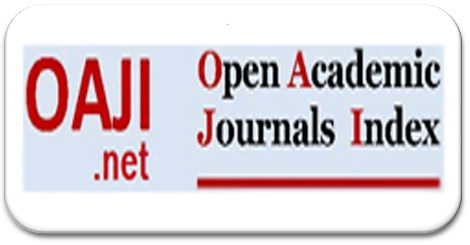Pemikiran Filsafat Islam Mulla Sadra
Abstract
Mulla Sadra name the Islamic philosophy the al-Hikmah al-Muta'aliah. According to him, al-hikmah al-muta'aliah is the knowledge which is based on an intellectual intuition (irfani or isyraq dzawq), rational proof ('aql or istidlal), and the shari'ah (burhany). Al-Hikmah al Muta'āliyyah is a synthesis of three mode of thinking, namely: theology with character polemical dialectical (Jaddaly), philosophy with the character of demonstrative (burhany), theosofy with the illuminastic and gnostic character (dhawq). This all elements are derived from the Koran, and Hadith. Human‟s knowledge is divided into two: husuly science and hudhury science. Husuly science (acquired), knowledge gained through ilham (inspiration), al-kasyf (unveiling) and al-hads (intuition). Science hudlury (innate) covers about perception which, according to Mulla Sadra it was identified as an act which refers to the sensation, thus the perception is the designation for the deeds done by any soul to know the object of knowledge, both physical and non physical. He divides perception into four levels; sensory perception (al-Hiss), imajinal (al-khayal), intuition senses (wahm), intelegency (ta'aqqul). Intelegency as the highest level is based upon the degree achievement (tajarud) with the cosmos, while the sensory perception is the lowest level. The term tajarud is actually ascribed to Allah as a Being Payers (wajib al-wujud) who do not have an attachment to anything else but Himself. God‟s knowledge is objective existence (al-wujud al-'ainy). Human‟s knowledge is mental existence (al-wujud alDzihny).
Keywords
Full Text:
PDFReferences
Abdul Mun‟im al-Hafani. Al-Mu’jam al-Falsafi, Arabi Injlisi, Faransi, al-Mani, dan Latini, Kairo: al-Dar al-Syarqiyah, 1990.
Abdul Mun‟im al-Hafany, Al-Mu’jam al-Falsaf, ‘Araby, Injlisy, Faransy, Almany, dan Latiny, (Kairo: Dal al-Syarqiyah, 1990), hal, 217.
Ahmad Tafsir, Filsafat Umum. Akal & hati Sejak Thales Dan James, cet. 3, Bandung : Remaja Rosdakarya, 1993.
Al-Sayyid Kamal, Al-Haydari, Madkhalu ila Manâhij al-Ma’rifat ‘Inda al-
Islamiyyin. Cet. 1. Iran: Dar Faraqid, 1426 H.
Amuli, Jami'al-Asrar, editor H. Corbin & O. Yahia, Tehran: Institut Franco-Iranien 1969
Haidar Baqir, Filsafat Islam, tentang Prinsip-Prinsipp Filsafat Hikmah.
Hasan Bakti Nasution, Hikmah Muta’aliyah, Bandung: Citapustaka Media, 2006.
Husein Afandi al-Jasr al-Thaablusy, Al-Husun al-Hamidiyah, li al-Muhafadzah ‘ala al-Aqaid al-Islamiyah, Ridlwan Muhammad Ridlwan (Ed.), (Surabaya : Sa‟id Ibn Nabhan Wa Auladuh, t.t), hal. .63.
Jalaluddin
-----, Hikmah Muta’aliyah: Filsafat Islam Pasca Ibnu Rusyd, dalam
Jurnal Al-Hikmah. Nomor 10,Juli-September 1993.
Jalaluddin Rahmat dalam Mulla Sadra, Kearifan Puncak, terj. Dimitri Mahayana,et.al., Yogyakarta: Pustaka Pelajar, 2001.
M . Sa‟id Syaikh, Kamus Filsafat Islam, terj. Mahnun Husein, (Jakarta: Rajawali,1991.
M.M. Sharif, A History of Muslim Philosophy, Wiesbaden : Otto Harrassowitz, 1966.
Mehdi Ha‟iri Yazdi, Ilmu Hudluri, prinsip-prinsip Epistimologi dalam Filsafat Islam, terj. Ahsin Muhammad, Bandung: Mizan, 1994.
Murthadha Muthahari, Syarh al-Mandzumah, Jilid. I, cet. 1, Terjemahan ke dalam bahasa arab oleh Abdul Jabbar al-Rifâ (Iran: Qum, 1413 H.
Mustamin Al-Mandary (ed), Menuju Kesempurnaan Persepsi dalam Pemikiran Mulla Sadra, (Makasar: Safinah, 2003.
DOI: http://dx.doi.org/10.22373/substantia.v13i2.4822
Refbacks
- There are currently no refbacks.
Copyright (c) 2011 Nurkhalis Nurkhalis

This work is licensed under a Creative Commons Attribution-NonCommercial 4.0 International License.
SUBSTANTIA: JURNAL ILMU-ILMU USHULUDDIN
DITERBIKAN OLEH:
FAKULTAS USHULUDDIN DAN FILSAFAT
UNIVERSITAS ISLAM NEGERI (UIN) AR-RANIRY BANDA ACEH, ACEH INDONESIA
ALAMAT REDAKSI:
Gedung Fakultas Ushuluddin Lantai II, Fakultas Ushuluddin, UIN Ar-Raniry, Jln. Lingkar Kampus, Kopelma Darussalam Banda Aceh, Aceh 23111.Telp. (0651)7551295. eMail: [email protected]

This work is licensed under a Creative Commons Attribution-NonCommercial 4.0 International License.


.png)




















